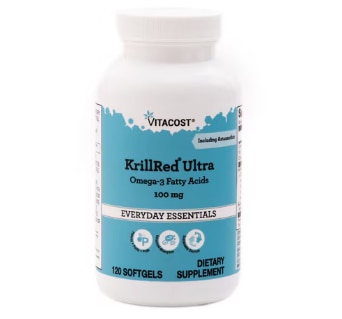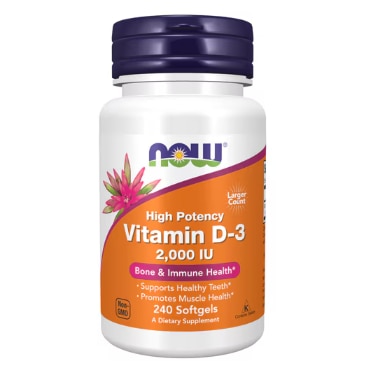There’s nothing more frustrating than trying your best to manage your diabetes by eating balanced meals, exercising regularly and taking your medications, only to find that a supplement you’ve added to your routine is harming you more than helping you.
For many people living with diabetes, some of these seemingly harmless supplements can actually do more harm than good, interfering with blood sugar control, interacting with medications or causing other unwanted side effects.
In this article, we’ll dive into the science behind why certain supplements may be a problem for people with diabetes. We’ll help you understand potential risks and provide information about how to make informed decisions about the supplements you choose.
The best supplements for diabetes & what to avoid
When you have diabetes, managing your blood sugar can feel like a balancing act, and introducing a new supplement can sometimes throw this balance off course. The primary issues stem from a few key factors.
One of the biggest concerns is that the FDA does not regulate the supplement industry as it does the pharmaceutical industry. Products may not contain the amount of an ingredient listed on the label, or they could be contaminated with other substances.
In addition, some supplements contain ingredients that can directly raise blood sugar levels. This might be due to added sugars, carbohydrates or an ingredient that stimulates the liver to release more glucose. Many supplements can also interact with diabetes medications, either making them less effective or, in some cases, making them more effective and leading to low blood sugar levels.
Let’s review some of the specific supplements that may raise red flags for people with diabetes.
Supplements to avoid or approach with caution if you have diabetes
Glucosamine
Glucosamine is often used to support joint health and manage conditions like osteoarthritis.† Several studies have shown that high doses of glucosamine can increase insulin resistance, leading to elevated blood sugar levels. This can be a concern, especially if you’re already struggling with blood sugar control. It’s always best to discuss with your health care team whether the potential benefits outweigh the risks.†
Niacin (Vitamin B3)
Niacin is a B vitamin that helps convert food into energy. It may be used to support cholesterol levels, but it can cause insulin resistance and raise blood sugar.† While regular dietary intake of niacin should not cause any concerns, using high-dose supplements for cholesterol management should be done with caution and only under the supervision of your healthcare provider.
Chromium
Chromium is an essential trace mineral that plays a role in carbohydrate and fat metabolism. There are claims that it may support insulin sensitivity and blood sugar.† The results from some studies indicate that chromium supplementation might have an additive effect with insulin, metformin or other diabetes medications and, therefore, might increase the risk of low blood sugars.†
St. John’s Wort
Known for its use in supporting healthy mood, St. John’s Wort can have significant interactions with many prescription drugs, including those for diabetes. It can affect how the body metabolizes medications, potentially making them less effective and impacting blood sugar control.† If you are taking diabetes medication, it’s generally advised to avoid this supplement.
Ginseng
Ginseng is a popular herbal supplement known for supporting energy and the body’s inflammatory response.† Some studies have shown that it can also support healthy blood sugar.† For people already on blood sugar-lowering medications, this can potentially lead to dangerously low blood sugar levels. Before supplementing with ginseng, make sure you are closely monitoring your blood sugar levels and talk to your healthcare provider.
5 Strategies for Safe Supplement Use
Below are a few strategies to help you make safe decisions about the supplements you choose.
Talk to your healthcare provider
Before you start any new supplement, speak with your doctor or a registered dietitian. They know your health history, medications and your specific needs. They can help you evaluate the potential benefits and risks and provide guidance on what might be safe for you.
Do your homework
Don’t rely solely on marketing claims. Do some research on your own. Look for reputable scientific sources and check information from organizations such as the American Diabetes Association (ADA) or the National Institutes of Health (NIH). Be wary of products that promise a “cure” or sound too good to be true.
Read labels carefully
Pay attention to the serving size as well as the “Other Ingredients” section on a supplement label. Some products, especially liquid vitamins or gummies, can contain added sugar or carbohydrates that you might not expect.
Monitor your blood sugar
If your doctor gives you the green light to try a new supplement, make sure to monitor your blood sugar levels more frequently than usual, especially in the first few weeks.
Avoid products with unclear ingredients
If a supplement’s label is vague or doesn’t clearly list all ingredients and their amounts, it’s best to avoid it. A lack of transparency can be a sign of poor quality or even hidden, potentially dangerous ingredients.
Commonly recommended supplements for people with diabetes
So, which supplements should you consider if you have diabetes? Some supplements may offer added support for people living with diabetes. However, they should always be used to complement, not replace, prescribed medications and a balanced diet, and it’s best to discuss any supplement use with your healthcare provider.
Some commonly recommended supplements for people with diabetes include:
- Magnesium: Many people with diabetes take magnesium. It has been widely studied and plays a key role in insulin sensitivity and healthy blood sugar.†
- Vitamin D: Vitamin D supports immune function and may help support healthy insulin resistance and blood sugar.† Not getting enough vitamin D can be common in those with diabetes, particularly in the colder months.
- Omega-3 fatty acids: Omega-3 fatty acids, found in fish oil, may help support healthy triglycerides and heart health.† This can be helpful considering the higher risk of cardiovascular disease in people with diabetes.
- Vitamin B12: Long-term use of Metformin can lead to B12 deficiencies and related nerve issues. Supplementing with vitamin B12 may help†
- Probiotics: Research suggests that probiotics may promote gut health, which in turn is linked to healthy blood sugar control and inflammatory response in the body.†
In summary
With so many supplements on the market, it’s important for people with diabetes to make informed, cautious choices. Regularly monitoring your blood sugar, staying informed through credible sources and maintaining open communication with your healthcare team can help you safely explore supplements while prioritizing your overall health.
†These statements have not been approved by the Food and Drug Administration. These products are not intended to diagnose, treat, cure or prevent disease.




